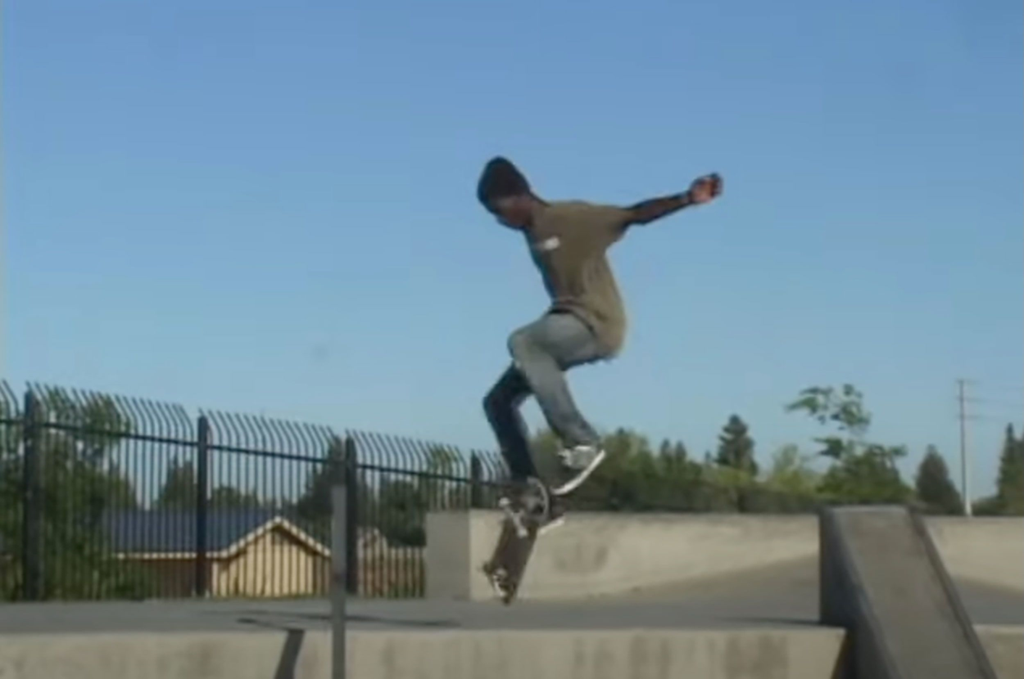The Stories We Tell

I thought today’s Focus was going to be about our team’s learnings from the first few months of new business development, culminating with the recent alpha site launch for www.sharemorestories.com. There’s some of that in this story. But I’ve learned that there’s the story you need to tell, and then there’s story you tell instead. Hopefully this is more of the former and less of the latter.
Last week represented a huge milestone for us. After nearly six months of research, teamwork, development and engagement, we had a platform through which we could begin learning with actual customers, real storytellers and story seekers. A lot of people asked me how I felt, upon the launch of our site. It’s been unusually difficult for me to answer the question. That’s because there’s so much that went into achieving this first milestone and there is yet so much more to do. Really, we’re just at the beginning. We started a marathon, passed the first mile marker and now we’re in it. We know we have a lot of work to do, storytellers to attract, content to curate and story seekers to find. But we’ve started, and that seems like a pretty big deal to us.
Only, this really isn’t the beginning. Not for me, at least.
For me, this journey started nearly 20 years ago. I had already been out of Princeton for nearly a year and a half, my poor grades having resulted in the academic equivalent of being ruled “ineligible to play.” In my early 20s, I was aimless, unsure of myself and “shook” at having lost what I considered then to be the opportunity of a lifetime: to graduate from Princeton University, make my mother and late father proud, and continue my family’s rich tradition of African American college graduates. Princeton had my heart. And then, the dream seemed over, no longer real.
Nevertheless, there was one thing my mother taught me and always expected from me: keep moving forward. Her inner faith and perseverance served as reference points for my sister and me throughout our childhood and into adulthood. So I did then what I always did (and still do) when faced with adversity: I put one foot in front of the other and kept moving.
Forward movement took me to Columbia University in January 1995. I knew it was time to resume my education and I decided I wanted to become a writer, so I enrolled in four creative writing courses in the university’s storied Creative Writing Program. I was hopelessly overwhelmed with learning a new craft and loving it, but I couldn’t shake the internal conflict of starting over at Columbia in a semester that should have been the final one of my senior year at Princeton. Still, I persevered.
All of my writing teachers made an impact on me, but two stood out in particular: Phyllis Raphael and Raymond Kennedy. Phyllis was a master teacher of writing. She brought an infectious joy to class and imparted a sense of excitement about what we might learn about ourselves and each other through writing. I’ll never forget one of the lessons I learned from Phyllis. Early in the semester, she taught us principles from Natalie Goldberg’s masterful Writing Down the Bones, which asserted that we live in a world of second and third thoughts, that we are constantly, subconsciously editing our thoughts and words, out of fear of judgment or rejection. This fear causes us to betray the truths inside us and keep our most authentic, most meaningful and most impactful stories locked away, a painful condition which Maya Angelou accurately describes as such: “there is no greater agony than bearing an untold story inside you.” Indeed. Ever since Phyllis Raphael first taught me to write – and live – in the world of first thoughts as much as possible, I made it a point to commit thoughts to words, to share stories and encourage others to share theirs.
Raymond Kennedy was a different kind of teacher. He was a legendary figure on campus, loved and feared at once, due to his literary brilliance, New York sensibility and disarming camaraderie outside of the classroom. He was as likely to enjoy a cigarette outside in the cold with his students as he was to deliver a searing review of students’ writing just moments later. He laid the challenge out for us at the start of semester as plainly as he could, in essence giving us the choice between writing well or leaving his class. Most of us attempted to accomplish the former, with varying degrees of success. His objective was very, very clear: he wanted us to test our limits as writers, pushing further and further, digging deeper and deeper, working harder and harder until we had something approaching a respectable story. I found that process intimidating and I was clearly out of my depth compared to my classmates, a fact which Raymond often reminded me of early on in his class. I persevered, kept taking the feedback and eventually got stronger as a writer. His feedback on my last story of the semester was akin to awarding me a gold medal. He wrote simply, “Not bad.” I celebrated.
By the end of my time at Columbia (still with no degree), I had become a relatively decent writer, at least in my own eyes. I was still aimless, however, unsure of what to do next. Should I try to write a book? Should I get a job working for a magazine? Should I go into PR? It was all still so unclear to me.
So I did nothing. I gave up the dream of becoming a published author, worked at my church for a while, did real estate in Manhattan for a bit, and ultimately decided to go the corporate route. My life took a different path and the next 18 years were full of, well, life events.
Along the way, there were a couple of attempts to stay connected to the writing lifestyle: I pursued a couple of publishing and writing-related projects, including a pre-Amazon eBook concept called DigiBooks, and later a web-based collaborative writing platform, The Digital Book Project. Neither was successful, but that was okay. As they say, “life goes on,” and I had the love of family and friends, as well as a successful career in a company I absolutely loved being a part of. Still, as the years went by, I felt I had drifted slowly off course. In recent years, this sense grew stronger. I couldn’t put a finger on it, but I knew I needed to find a way to get back to the core, to the truth. The problem was I had no idea how to do that.
And that’s when the signals started showing up.
In May of 2013, I found myself sitting with my wife, my sister and my sons at my mother’s bedside during hospice, getting ready for her Great Transition. This mighty, mighty woman, our family’s rock, our inspiration, was dying slowly and fading fast.
I stepped away one morning to meet with Scott Wayne, a close colleague. We agreed to grab coffee so I could gain some perspective and take a break from “The Watch.” It was a great opportunity to begin framing my mother’s life in full, sharing her impact on me, while also lamenting that I might never live a life as great as hers. As I’ve shared previously, Scott asked me a profound question that day: he asked me if I had heard of a calling, and whether or not I knew what mine was. We had a terrific conversation about purpose, meaning and fulfillment, and even in my grief, I sensed a new hope stirring inside of me. This was the first signal.
Probably a day or two before my mother passed away, my wife informed me that she was pregnant. At the time, I already had two awesome teenage sons from my first marriage, and I greatly anticipated the joy a new baby would bring into all of our lives, especially theirs. Somehow, my mother’s passing at the same time that another life was preparing to enter this world seemed to be more than coincidence to me. In fact, it seemed like another signal.
The year went on, I rededicated myself to work, we prepared our home for the arrival of our newest family member, and at the end of 2013 we welcomed our baby, another son, into our world.
The first few months of 2014 were hectic, but I worked with some amazing team members so I was able to achieve a decent level of balance during those first few weeks and months after our baby arrived. The emotions of being a new dad again brought so much up to the surface for me. I started to feel an urge to put my words to use again, but still, I struggled with the “how.”
One day in February, I shared a comment on the Facebook update of a high school classmate, Branwynne Kennedy. It would’ve been one of those random, relatively unimportant comments, except for her reply:
“The best compliment I’ve ever gotten came from James Warren on New York City: ‘Honest, fresh, deep and cool. People like you… And hip hop.’ I doubt he remembers that he studied writing with my father Raymond Kennedy! Those are the connections in fleeting NYC that I think are amazing.”
Life is funny like that. 19 years later, practically to the day, Branwynne’s words vividly reminded me of past days spent learning how to write (or trying to, at least), while sitting at the virtual feet of a master, her father. I took this as yet another signal.
I guess I wasn’t listening loudly enough, so another signal was needed. And it came in grand fashion in late April of this year. After a long, successful career at Altria, my time with the company came to an end and I found myself at a new crossroads professionally. What to do, what to do?
I had a lot of options and opportunities ahead of me, but they definitely diverged into two distinct directions: continue a corporate career, or strike out on my own. I began talking to lots of stakeholders, primarily family, close friends and colleagues, and trusted mentors. I got a lot of valuable perspective and insight early on, and pretty quickly, I began to realize that my new path, and my ultimate journey lay in reclaiming my role as a storyteller and a facilitator of other people’s stories. I felt a strong conviction that it was time to finally bring to life the vision of a platform where people could share their own stories, discover the stories of other people, and do it all collaboratively and socially.
That moment of clarity was accompanied by one of panic as I looked at my wife and my sons, two teenagers and a newborn. I wondered silently at first, and then loudly through tears and fears, was I doing the right thing for all of us? Was this the right future? As we discussed it and worked through it, I believed the answer was “yes,” but to be clear, there were and still are moments of doubt that accompany the process of starting a new company after 40, with a lot of personal financial responsibilities and pressure.
I’ve heard people say that one can innovate simply by solving problems close to home. I guess you could say that was my motivation in part, to solve my own problem, give voice to my own story. In doing so, I realized I wasn’t alone. There were many other people, these “everyday storytellers,” who had stories to tell and wanted to share them. That made the purpose of the platform much bigger and starting sharemorestories.com became a calling.
As I cautiously and optimistically moved forward with concept exploration and development, I received another signal. This one originated even closer to home.
My oldest son wrote his English term paper on the American Dream, and in it he shared three of his inspirations: his maternal grandmother who ran a youth music foundation in her late husband’s honor; his step-grandfather who after nearly a decade of retirement, decided to go back for a second undergraduate degree at the University of Arizona, and then wrote a book about the family’s experience with his son’s traumatic brain injury; and me, because I had expressed the courage necessary to start my own company. I had no idea I had impacted him this way. I was honored and humbled. It also fueled me. I had my answer, at least in part, through yet another signal.
I began this journey by getting perspective and seeking out kindred spirits who would share the vision and build on it. A team formed and we got to work. The ultimate vision of sharemorestories.com is to improve human self-expression and connection through story. We want to provide a platform for storytellers and story seekers, to experience stories together. We imagine a place where fewer and fewer people suffer their untold stories, and the rest of the world rejoices with them upon hearing and sharing what these storytellers have to say.
It’s been an amazing ride so far. Those who know me know how much I love teamwork and collaboration. Some things must be done individually, but generally you’ll have a hard time convincing me that collaboration doesn’t make most things better. Our team is extremely collaborative. We have to be, for 95% of our work is done virtually, and some of our team members still haven’t even met each other in person. But I guess that’s the power of ideas and shared vision.
The signals still keep coming, but now they seem more like affirmation than suggestion.
A couple of weeks ago, I led a workshop for my middle son’s high school creative writing class on collaborative writing and social storytelling. I had an absolute blast sharing my passion for storytelling with these young writers, just in time for them to begin their novel writing projects, as part of National Novel Writing Month in November. And last week, a trusted mentor and friend left a voicemail message for me. We had worked together for years at Altria and he knew more than most what the transition from corporate life to startup life entailed for me personally. His message said “You’re reinventing yourself right now. I’m so proud of you.” Encouragements like that fuel us now.
We’re just getting started and there is so much to learn and know. We take comfort in being purpose-driven and fixing our eyes on the vision. We feel emboldened by our humble beginnings because we’re talking about people’s stories, their hopes and their dreams. We’re helping them give voice to their own pasts and the journeys of their ancestors. And we’re enabling them to create, connect and express themselves through common experiences.
So this is my story, at least a part of it. This is why I am personally driven to make sharemorestories.com a platform where people can experience stories in a social way, creating, collaborating, discovering and connecting together. This is why I consider it a privilege to be part of this wonderful team of collaborative individuals who embrace a vision of a world full of stories shared. (Just typing that made me smile.)
I’ll leave you with the words of Maya Angelou once more – haunting at first, now illuminating: “There is no greater agony than bearing an untold story inside you.”
There’s the story you really need to tell, want to tell. Then there’s story you tell instead. Please, tell the one you need to. We’re all waiting to hear it.
Photo Credit: James Warren







James, such a beautiful and poignant piece. I am honored to know you and to work with you–and utterly impressed with your brilliance. SMS is destined for great success as it fills a need in all of us to both express ourselves honestly and thoughtfully and to be enriched by others’ experiences, observations and creativity. Thank you.